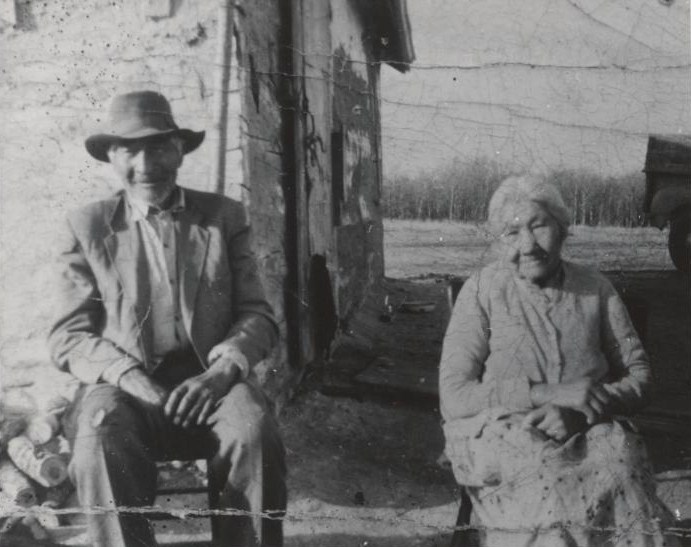
Cultural Leaders
 |
|
In front of house Allen Sapp was born in. Maggie Soonias (Allens Mothers Mother) Photo Courtesy of the Allan Sapp Gallery |
Elders and Cultural Leaders
First Nations elders and cultural leaders are valuable resources in transmitting First Nations culture by sharing their knowledge and teachings through a holistic worldview. They are an integral part of our education system in relating Aboriginal history, perspectives, and experiences. Often elders and cultural leaders are called upon for their knowledge in certain areas like storytelling, ceremonies, songs and dance, governance, justice, traditional parenting and family units, positive lifestyles, spirituality, traditional plant usage, and cultural protocols to name a few. Elders and cultural leaders are known in their communities to assist in presenting valuable advice and are highly respected for their expertise and should be treated with respect following traditional protocols of the First Nations.
Elder
An elder is usually an older person and is defined by that within their communities amongst their peers, leadership, and community members. There is no age definition for an elder in First Nations communities but they usually have attained the role of an elder by their knowledge, vision, life experiences, leading positive lifestyles, their practices and traditions within their communities. Their knowledge is also seen as a gift from the Creator and has the purpose of sharing it with others. Their roles are important in promoting harmony, respect, spiritual guidance, and their ability to respond to their community in times of need. The journey in becoming an elder is extensive and requires merit and acceptance from their communities. Elders are highly regarded and should always be given respect in all circumstances and when you meet an elder you should always shake their hand as this shows respect for that elder.
Cultural Leaders
Cultural leaders are usually people who have not achieved the status of an elder, however, possess expertise in an area, and are often still learning their trade in becoming an elder. Nonetheless, they offer their knowledge in certain areas that are valuable to communities. For example, they may be a singer, a dancer, they bead, make traditional crafts, tan hides, a storyteller, and so forth. Cultural leaders are to be treated with the same respect as an elder because they are sharing their knowledge with society.